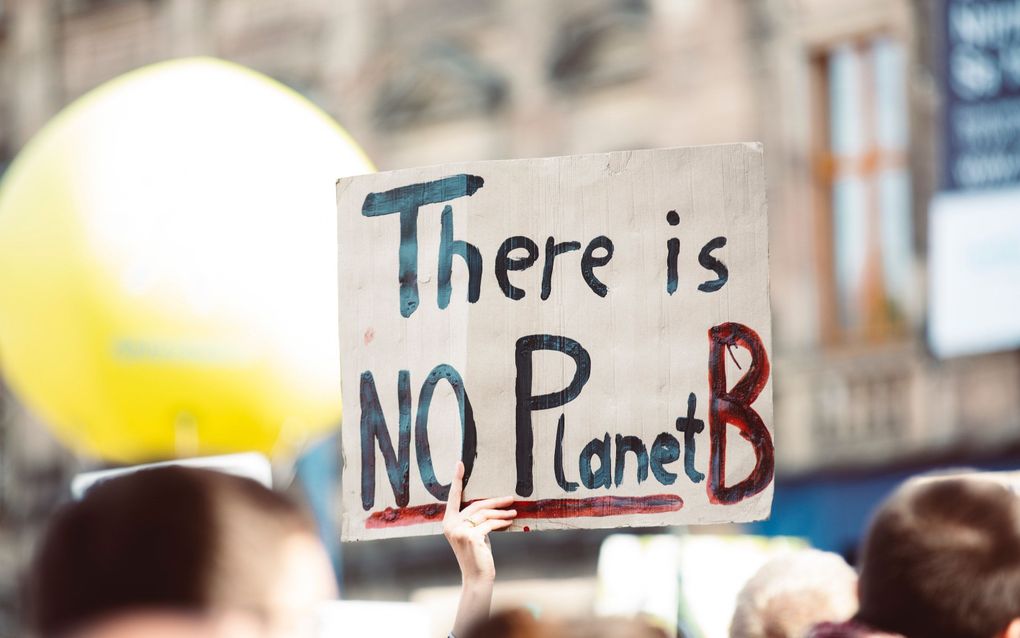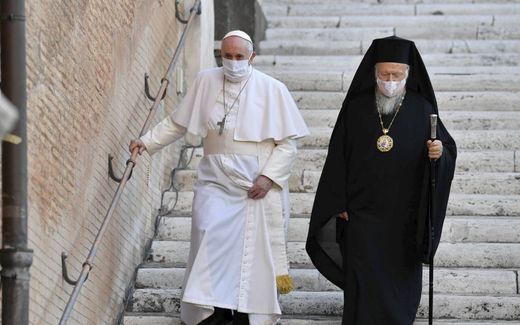Threat of climate change leads to radical actions

Climate pilgrims walk a long distance to Glasgow in order to communicate their message. Photo Pexels, Markus Spiske
European Union
Across Europe, religious organisations and individuals have joined hands to speak out to Glasgow's Climate Change Conference (COP26) decision-makers. "Ordinary people are more radical than politicians."
Climate pilgrimage
1450 Kilometres. That is the distance a group of so-called climate pilgrims are walking to Glasgow. The ecumenical group started in Poland and walked up to 25 kilometres a day to finish in Glasgow.
There, they want to hand over signatures to the world leaders who will be discussing how to combat climate change. On the way, they are supported by local churches.
The walk is called "Geht Doch", "Just go". It is an initiative of the Institute for Church and Society of the Evangelical Church of Westphalia in Germany. In the Netherlands, the pilgrimage is supported by GroeneKerken, Green Churches, which helps churches to become more sustainable.
The Dutch Hanna van der Horst is the project leader of Green Churches. She believes it is essential that sustainability is placed prominently on the agenda of Christian churches. "The report from the IPCC, the United Nations' climate panel, this summer was clear. There is no place in the world where people are not affected by climate change. We can't go on like this if we don't want future generations to have a tough time", she told Dutch daily Reformatorisch Dagblad.
It is not easy to walk in a climate march. "It is intense to live in a group day and night", says the Swedish Annika Spalde to Dutch daily Trouw. "You don't have time to be alone; I miss that."
But, according to her, propagating the climate mission compensates for everything. "It goes beyond changes in our lifestyle. I never fly, eat vegan and don't have a car. I want to build a community so that we can do something for the climate together."
Although climate activists think that the transition into a sustainable society goes not fast enough, Spalde sees hope. "Ordinary people are more radical than politicians", she told Swedish daily Dagen. "A lot of people take this issue very seriously and want to change their lives."
Spalde hopes to get politicians along with their message as well, "because political decisions are required".
Talking is not enough
Not only individual Christians are taking action against climate change. Last week, a group of 72 different religious communities – including various Christian denominations and an international Buddhist movement announced the largest-ever joint divestment of fossil fuels by faith groups.
According to La Croix, this move involves more than $4.2 billion of combined assets that various religious institutions hold in, among other countries, Ireland, Italy, Ukraine, and the United Kingdom.
Bishop Nollan of Galloway, who is in charge of environmental issues for the Bishops' Conference of Scotland, was quoted by the Spanish site Religion Digital saying, "Talking is not enough; it is necessary to act".
The Pope gave attention to the Climate Conference as well. "Climate change and the pandemic have exposed our deep vulnerability and raised doubts and concerns about our economic systems and the way we organise our societies," the Pope said in a message recorded at the Vatican for BBC Radio 4's Thought for the Day.
According to the Pope, everyone can play their part in changing the collective response to the "unprecedented threat of climate change and the degradation of our common home."
Controlling population size
In preparation for the Climate Conference, the European Union and the Organisation of African, Caribbean and Pacific States called on all countries to submit their so-called Nationally Determined Contributions (NDC's). These non-binding national plans show climate actions governments aim to implement in response to climate change.
In July, the United Nations sexual and reproductive health agency (UNPFA) published a report in which it stated that "only" six out of fifty studied NDC's from countries of the Eastern and Southern African region, the Arab States, Asia Pacific, Western and Central Africa and Latin America and the Caribbean included references to sexual and reproductive health and rights (SRHR).
One of the report's key findings is that in some NDC's, there were references to controlling the population size. That is not consistent with the International Conference on Population and Development Programme of Action, adopted in 1994 by 179 Member States. "Climate policy must be underpinned by a rights-based voluntary approach to reproductive choices, not on population numbers or targets", the report states.
According to the report, SRHR are important to build resilience to the effects of climate change. "Realising SRHR is crucial to achieving gender equality and is a central component of gender-responsive adaptation to climate change." Therefore, the report mentions that only one studied NDC's referenced gender-based violence (GBV).
According to the report, adapting to a changing climate must include action on GBV. The report further suggests that climate change can have limiting access to an "essential" service like abortion.




